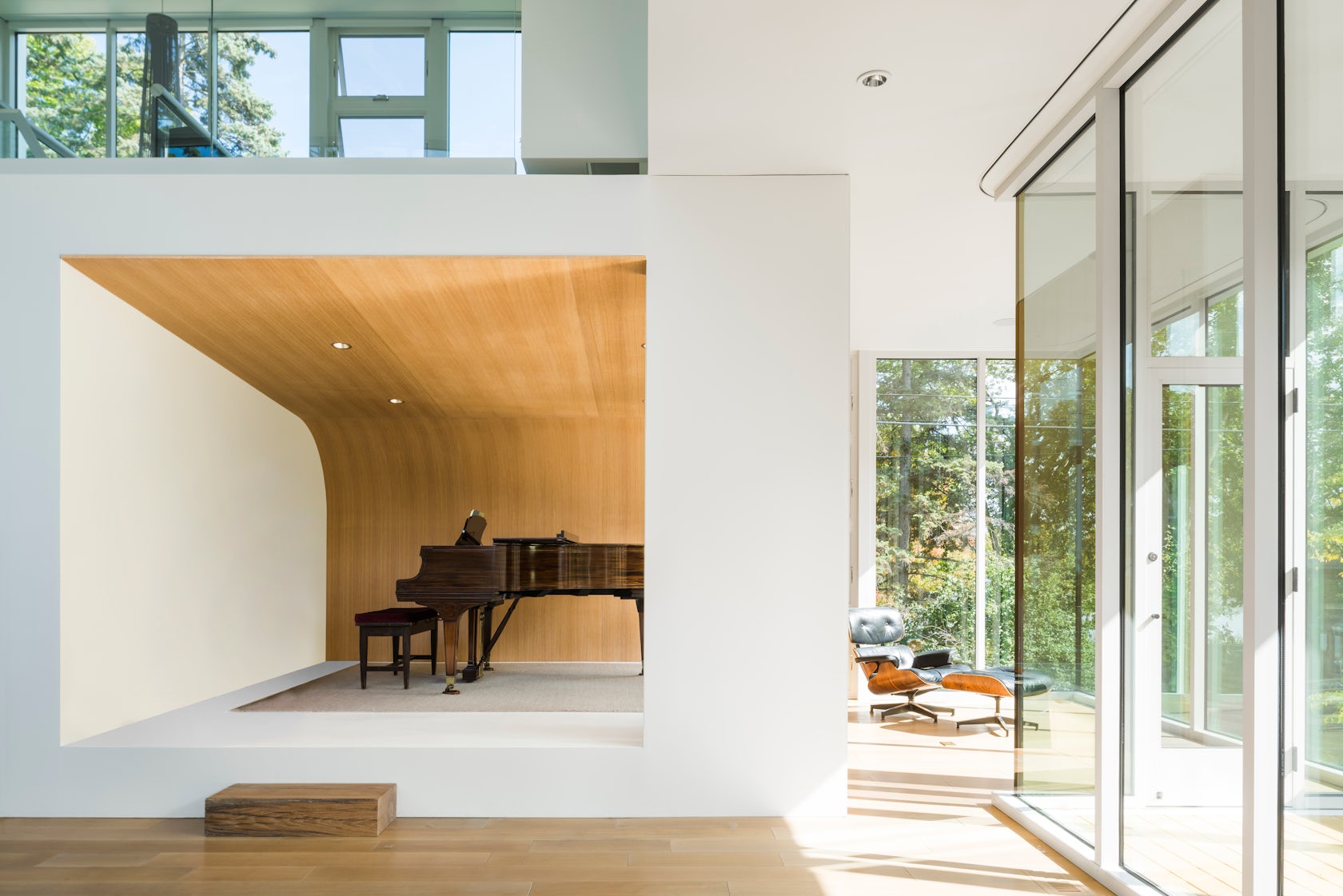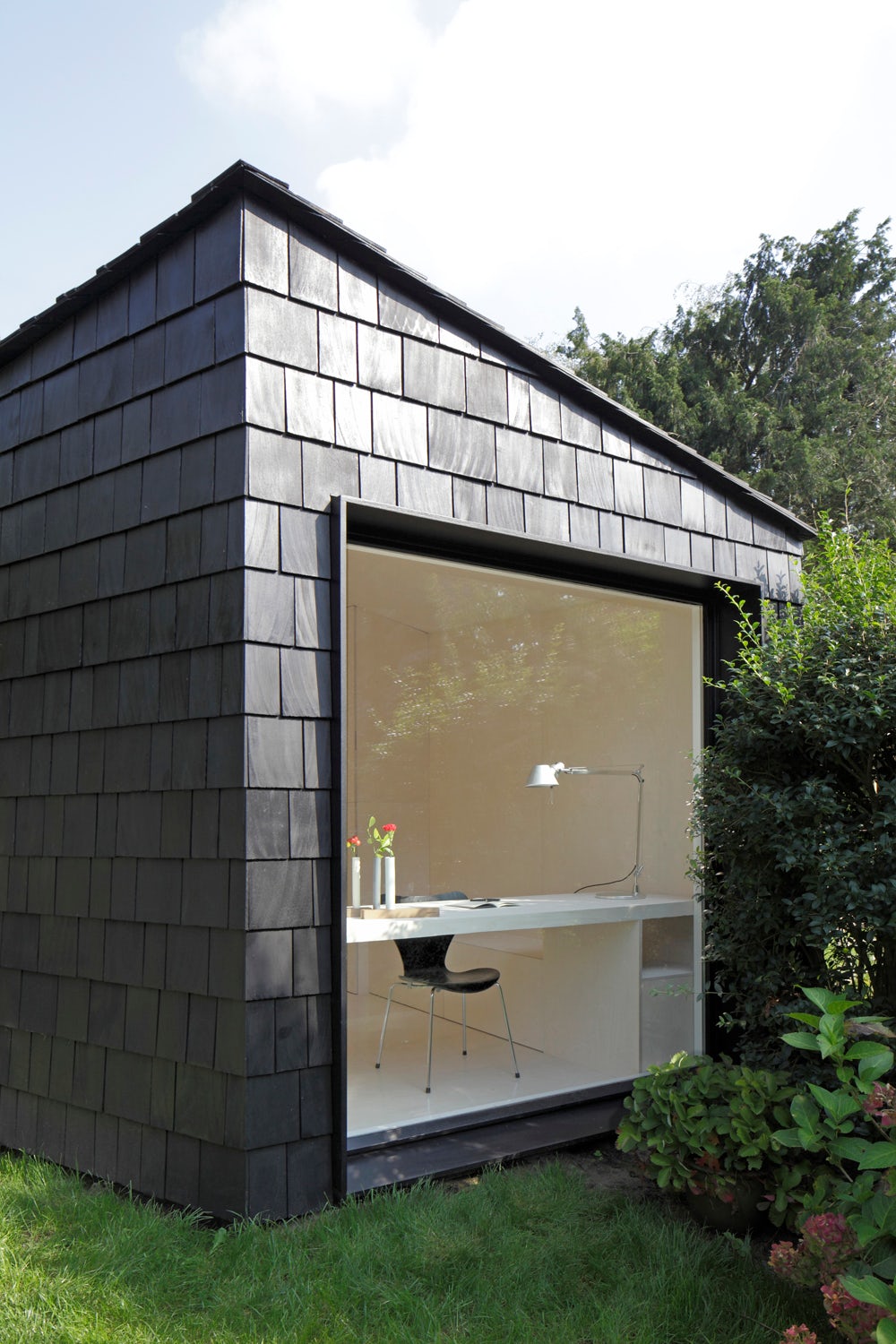Allowing for expansive light filtration and glimpses of the outside world, various approaches to glazing have been leveraged as enduring tools throughout residential construction. In this collection, each architect moves beyond traditional windows situated along a single wall-face, and instead applies corner windows in order to achieve a sweeping connection between interior and exterior. From the comfort of one’s own home, such openings allow inhabitants to forge visible and intimate connections with the surrounding environment.
In addition, corner windows render increasingly complex building geometries and are thus equally transfixing from the outside-in. Looking onto the structure from certain angles, a portion of the building appears cutout or even transparent, therefore ceasing to exist against its surroundings’ terrain. Acting less as an imposition or a blockade, and more as a cooperative vitreous element, each design yields to the site upon which it extrudes. Peer over these lookouts, as each project expresses a pleasant duality of values, associated with solitary experience and privacy, as well as openness and connection.

© Lazor Office

© Lazor Office

© Lazor Office
Stack Houseby Lazor Office, Minneapolis, Minn., United States
At Stack House, solid blocks are layered in an intersecting lace pattern, resulting in a multi-story space that offers both inward privacy and immersion in one’s natural surroundings. Opening up views towards the lake nearby, the mid-level block is pushed back from the street and includes a glazed corner for solitary contemplation.

© MacKay-Lyons Sweetapple Architects

© MacKay-Lyons Sweetapple Architects

© MacKay-Lyons Sweetapple Architects
Enough Houseby MacKay-Lyons Sweetapple Architects, Canada
This 700-square-foot dwelling is the most recent experimentation in a series of affordable houses designed to explore the idea of “economic as ethic.” A flexible prototype intended to be recreated and adapted, the design optimizes both engagement with and refuge in the landscape. Through a generous 24-foot-wide corner window, residents may gaze over and admire the pastoral valley to the north and east.

© SoNo arhitekti

© SoNo arhitekti
Musterhaus Wienna by SoNo arhitekti, Vienna, Austria
A sample design for low energy and passive prefabricated buildings, this single-family home consists of two volumes of differing sizes and one gable roof. Through massive glazed surfaces, including a corner window in the main living area, the house achieves both openness and an intimate ambience.

© Raoul Kramer

© Raoul Kramer

© Raoul Kramer
Bussum Garden Studio by Serge Schoemaker Architects, Bussum, Netherlands
Bussum Garden Studio is a freestanding shed that functions as a study, guest accommodation and storage space. The challenge was to fit a relatively large building on an elongated plan. The resulting structure, which achieves a distinct presence and identity, is a geometric form entirely clad in shingles combined with a transparent corner window.

© S.O.F.A architekten

© S.O.F.A architekten

© S.O.F.A architekten
Haus PM / Meranby S.O.F.A architekten
A house amongst the mountains and forest, House PM / Meren is perched high up like an eagle’s nest, facilitating its expansive views. Towards the street, the building appears reserved and closed off. On the opposing face, the façade opens up through the implementation of both traditional and corner windows.

© Gray Organschi Architecture

© Gray Organschi Architecture

© Gray Organschi Architecture
The Cottage by Gray Organschi Architecture, New York, United States
As longtime residents on the property, the clients were intimately intertwined with the history of their land and therefore sensitive to changes in its character. They requested a building that would optimize the visual qualities of the site, while incorporating renewable materials and energy sources. With glazing details, the light-filled interior connects to the expanses of the site, its branching canopies and the ever-changing coastal sky.

© N Maeda Atelier

© N Maeda Atelier

© N Maeda Atelier
ORANGE by N Maeda Atelier, Tokyo, Japan
At ORANGE, glass functions as the material staple. Designed for a family with young children, the curvy and playful interior provides a stimulating and exciting space for exploration. With an indoor glass floor and expansive window ribboning around the entire structure, intense light filtration penetrates the home.




